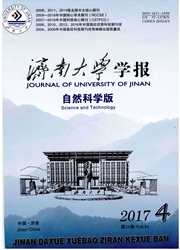
欢迎您!东篱公司
退出

 中文摘要:
中文摘要:
准正交空时分组码因其牺牲部分正交性来换取全速率而无法实现全分集,在已知信道状态信息的前提下,为最大限度降低数据符号彼此干扰,争取获得最大分集,提出两种准正交空时编码的自适应设计方案,并对其性能进行理论分析与比较,结果显示:两种自适应方案都能大大减小误码率;和增加自适应因子的方案相比,与波束形成技术相结合的自适应设计方案性能更为出色,但其增加了运算复杂度。
 英文摘要:
英文摘要:
QOSTBC system can not achieve full diversity, because the system uses some orthogonality in exchange for full rate. Under the channel state information is known, in order to try best to minimize interfering and strive for maximum diversity, we propose two QOSTBC adaptive designs. Through analysis and comparing the performance, the two adaptive designs can greatly reduce the error rate, and the performance ofthe second design scheme is better than the first, but the second increases computational complexity.
 同期刊论文项目
同期刊论文项目
 同项目期刊论文
同项目期刊论文
 Dynamic output feedback H∞ control for a class of switched linear systems with exponential uncertain
Dynamic output feedback H∞ control for a class of switched linear systems with exponential uncertain 期刊信息
期刊信息
